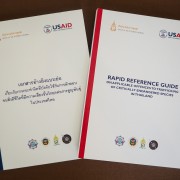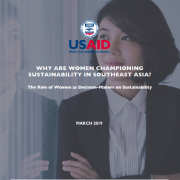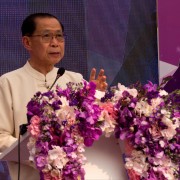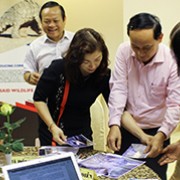Speeches Shim

In March 2019, Thailand’s Office of the Attorney General and the U.S. Agency for International Development (USAID) launched the Rapid Reference Guide on Applicable Offences to Trafficking of Critically Endangered Species in Thailand, a tool to help investigators and prosecutors navigate existing legislation to more effectively build strong cases resulting in successful prosecution of wildlife criminals.

Tainted food, plastic pollution, global warming and climate change – these are a number of the top concerns women have as consumers and investors, according to a study released by the USAID Green Invest Asia project and Moxie Future on women’s preferences and behaviors toward sustainable investment and business – a growing, multi-trillion dollar marketplace.

As a lab technician and now a leader in public health, Kanyarat Lausatianragit works on the frontlines. Much of her work is in the field, especially along the Thailand and Cambodia border. From her base in Sisaket’s Mueng District, she leads teams of approximately 10 people, traveling long distances by car and boat to reach communities in need and to provide services at mobile clinics. The people she helps, who live up to a 12 hours’ drive from Bangkok, are rubber plantations workers, soldiers at the army camps, and village farmers, woodcutters and others. This area features large rubber plantations, and migrant workers crossing over the border and back are exposed to tropical rainforests as well as malaria. Patrolling border police are at greatest risk of infection.

The U.S. Agency for International Development (USAID), with funding from the U.S. President's Emergency Fund for AIDS Relief (PEPFAR), has been collaborating with Thailand’s HIV champion, Dr. Praphan Phanuphak, who diagnosed the first case of HIV in Thailand in 1985. He has been successfully fighting for the rights of those most at risk of contracting HIV such as people who in inject drugs, transgender women, men who have sex with men and sex workers. With PEPFAR and USAID support, Dr.

On November 24, Business leaders in Central Vietnam have pledged to actively combat illegal wildlife consumption, tapping new programs to shed light on wildlife crime and myths about consumption that are driving the trade in and through the country.

Comment
Make a general inquiry or suggest an improvement.